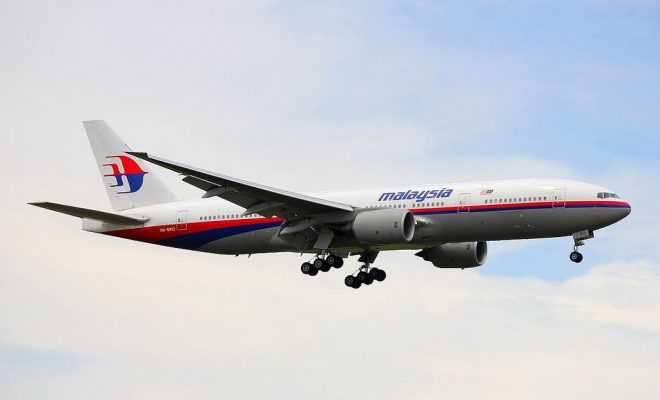 Image courtesy of [Auckland Photo News via Flickr]
Image courtesy of [Auckland Photo News via Flickr]
World
New Probe Shows Missile that Downed Malaysia Airlines Flight is Linked to Russia
A new Dutch probe into the downed Malaysian Airlines passenger jet that crashed in Ukraine in 2014, leading to the death of all 298 passengers, concluded that the missile used to shoot it down was Russian in origin. Investigators also said that Russia participated in the cover-up afterwards. The report mainly confirmed existing speculation that Russia was somehow linked to the attack and is part of international investigators’ attempts to collect enough hard evidence to build a case against Russia.
“Possibly they will bring charges of murder–and possibly even charges of war crimes,” said al-Jazeera’s Neave Barker who was at the news conference in Nieuwegein, Netherlands.
The incident only increased tensions between Russia and the West, and victims’ families are impatient for details about the truth.
“As a family we are impatient. We want to know what happened, how it happened and why? We want those responsible to face justice,” said Silene Fredriksz to media before the news conference. Her 23-year-old son and his girlfriend were on the plane.
The Evidence
The jet had taken off from Amsterdam and was heading toward Kuala Lumpur when it was unexpectedly shot down in July 2014. Though investigators didn’t say explicitly that Russia ordered the attack or named any individuals, the results of the probe show that the missile system, called Buk or SA-11, was delivered from Russia after a request from Russian-backed separatists just hours before it was used. After a missile had been fired and the plane wreck crashed in a field, the missile system was returned to Russia. Investigators made it clear that their intention is to find who is responsible, name suspects and potentially press criminal charges.
All 298 people on board, most of them Dutch citizens, were killed https://t.co/kBSIRtDuJ9
— Al Jazeera News (@AJENews) September 28, 2016
Among the evidence in the report was the testimony of a Russian rebel who allegedly guarded the missile system when it was sent back to Russia after completing its mission. The discovery of a missile nose cone and fin was also an important factor. One piece of evidence that was revealed last year was a piece of shrapnel in one of the pilots’ bodies, with characteristics unique to the exact type of Buk missiles that Russia uses; that particular model is not used by Ukraine.
In phone conversations included in the evidence, separatists were heard requesting the missile system because they wanted to defend themselves against Ukrainian air attacks. They received word that they would get it the same night. The Buk system was brought in by trucks across the Russian border. Prosecutors have figured out the exact route the missile was transported, where it was fired, and how it got back to Russia.
Russia’s Stance
Additional recordings of phone conversations showed the reaction from a militant to his superior when he realized it was not a Ukrainian plane but a passenger jet: “It was 100 per cent a passenger aircraft…there are civilian items, medicinal stuff, towels, toilet paper.”
Shortly after the plane was downed, a separatist leader named Igor Girkin appeared to be boasting about having shot down a Ukrainian military plane on a Russian social media website. He also wrote “We warned them–don’t fly in our sky.” The post was soon deleted.
Russia denies all involvement with the crash and calls the accusations “speculation, unqualified and unprofessional information.” Russian officials also have some interesting versions of what they think happened, including a theory that the CIA stuffed some hundred bodies in a drone and crashed it in Ukraine to discredit Russia. Another one is that Ukraine aimed to shoot down Russian president Putin’s plane but accidentally hit the Malaysian Airlines plane instead.
But even if prosecutors find the responsible individuals, what can they really do about it? Russia’s government prohibits the extradition of Russian citizens to trial in foreign countries. It is also unclear where, if any specific suspects are found and named, they would go to trial.








Comments